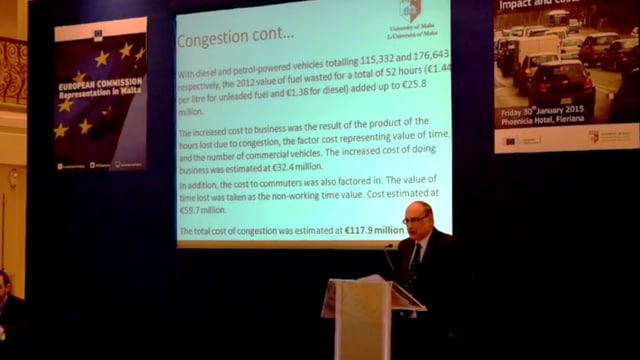Traffic congestion costing country €274 million a year
Total cost of accidents, congestion, climate change and pollution costs, and noise will increase to €317 million by 2020 unless anything changes




The increase traffic in Malta will cost the country a total of €317 million by 2020 unless the government and transport authorities improve public transport, reduce private car ownership, and change school hours.
The study by the Institute for Climate Change and Sustinable Development from the University of Malta found that unless nothing changes, Malta will experience a total of €89 million in costs related to traffic accidents, €15.3 million in air pollution costs, €51.2 million in climate change costs, €10.4 million in noise costs, and a massive €151 million in costs resulting purely from traffic congestion.
Traffic in Malta is already costing the country €274 million a year.
The European Commission’s Joint Research Centre has found preliminary results for traffic congestion in Malta show the average number of seconds of delay per km is estimated at 16.93 seconds whereas the European average is 5.74 seconds in 2012.
The results suggest an ongoing deterioration in the congestion situation in Malta.
The growth in car dependence has had both positive and negative impacts on Malta’s environment and public health, the economy and overall business climate, the study shows.
The study will assess three policy actions and their impact projected in the future. It will propose measures aimed at reducing traffic and congestion and estimate their cost.
These include increasing the efficiency of public transport, through further use of park
and ride schemes; use and deployment of non-road modes; more efficient use of the road network, through intelligent transport services.
It will also propose reducing the car fleet and promote car sharing, and optimising work and school hours.
“Staggering work and school hours would potentially distribute the traffic in the network, reducing the peak but extending the hours of relatively high traffic. This would not directly contribute to a decline in the amount of traffic and related impacts on the network, but could potentially impact congestion and its costs.”
The report also said that improving roads could “ease temporarily congestion levels” but not have significant impacts on reducing congestion.
“Road pricing and paid parking, aided by complementary educational, environmental and planning measures in specific areas, could be considered as policy options but their effectiveness and impacts need to be studied in depth.”
The study claims that by increasing the marginal costs of using a car, where it becomes less of a benefit to use private transport when other public forms are sufficient, could have a better impact on reducing traffic.








.jpg)




.jpg)






.png)

